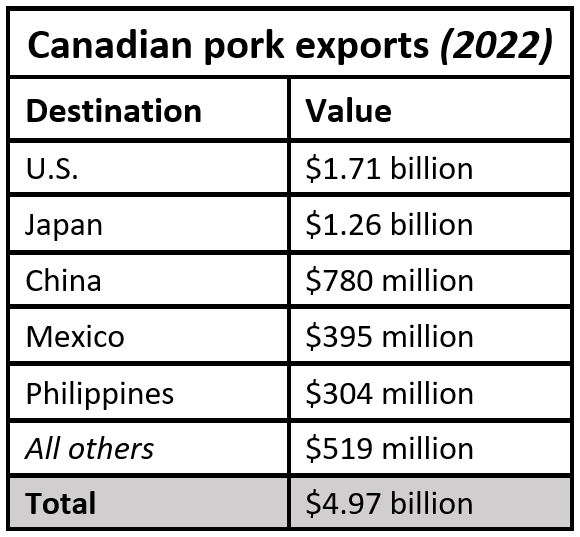By Dan Darling
Editor’s note: Dan Darling is President, Canadian Agri-Food Trade Alliance (CAFTA). For more information, contact Adam Taylor, Interim Executive Director, CAFTA at exec.dir@cafta.org.

Few pieces of legislation being considered by Canadian parliamentarians have the potential to jeopardize more sectors than they’re seeking to protect like Bill C-282, An Act to amend the Department of Foreign Affairs, Trade and Development Act (supply management).
In summary, the bill – put forth by the Bloc Québécois – would prevent Canada from ever contemplating concessions in sectors regulated through the system of supply management, specifically, dairy, eggs and poultry. As an organization representing the 90 per cent of producers, processors and agri-food exporters that rely on access to global markets, we believe this bill is ultimately unnecessary and runs counter to Canada’s broader economic interests.
First, this bill contradicts Canada’s long-standing trade policy objective of achieving comprehensive trade outcomes, as described by the Department of Foreign Affairs, Trade and Development Act.
Furthermore, tying the hands of trade negotiators before talks even begin will result in less ambitious pursuits across the board, as other countries will counter by excluding products or sectors from discussions where Canada has offensive interests.
This bill will also encourage other sectors to also seek exclusions from trade talks and will send the signal that protectionism is acceptable and indeed desirable – a public policy course that would be devastating for an export-dependent country like Canada.
Second, C-282 erodes Canada’s credibility as a leading voice for free and open trade. We shouldn’t kid ourselves; other countries are watching this legislation closely, and this bill’s passage will have immediate negative consequences as we fully expect many of our trading partners will respond by threatening to refuse to extend, review or modernize existing trade agreements. It would establish Canada as an undesirable trading partner and would limit our ability to even be invited to a seat at the table of various bilateral and multilateral negotiations. Perhaps most worrisome, this legislation contradicts Canada’s leadership at international forums like the World Trade Organization (WTO), where Canada opposes protectionism and supports free- and rules-based trade.
Third, this legislation is bad policy for a highly diversified economy like Canada’s. Removing options from trade negotiations out of the blocks would lead to less commercially meaningful results for all of Canada, because it would encourage every country to avoid making any significant concessions, especially in sensitive areas.
Simply put, prioritizing the economic interests of the products or sectors excluded above the economic interests of any other sectors in Canada is bad policy for a country where one-in-six jobs is generated by exports. And, make no mistake, this approach to trade negotiations will harm future growth opportunities for sectors that depend on trade, such as agriculture, energy, manufacturing, forestry, mineral products and consumer goods.

Finally, C-282 is bad from a food security perspective. International trade supports the accessibility and affordability of food. We cannot achieve global food security without free and open trade. As the world’s fifth-largest food exporter, Canada has taken on an obligation to feed the world. Closing access to markets is closing access to food. To that end, this bill also contradicts Canada’s commitments in recently signed declarations on food security at the Group of Seven (G7) Summit, Group of 20 (G20) Summit, WTO and Asia-Pacific Economic Cooperation (APEC) forum.
It should be noted that support for supply management and protecting it in trade negotiations is already long-standing government policy, from successive Canadian governments of all stripes. In fact, all of Canada’s recent marquee trade negotiations have been successfully concluded while protecting Canada’s system of supply management.
At the end of the day, there is no need or benefit for Canada to embrace and entrench protectionism on the world stage and set a dangerous precedent that delivers few – if not zero – benefits to the Canadian economy.
This is not an agricultural issue; this is a trade strategy and negotiation issue for an export-dependent country. We are calling on Canadian parliamentarians to look at the wider potential implications of this bill beyond the perceived short-term political clout.





